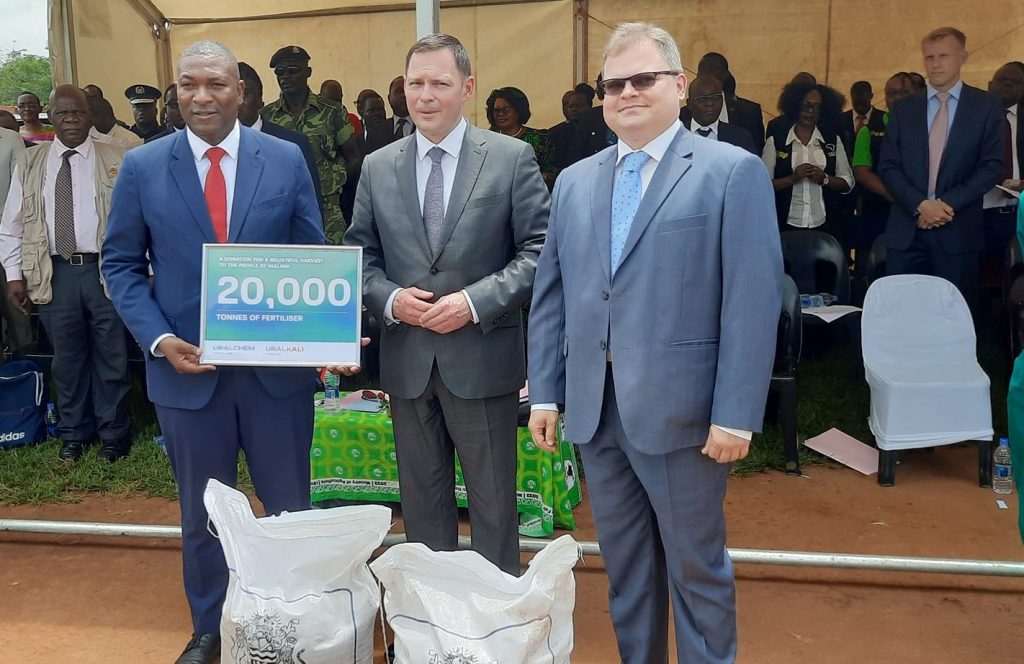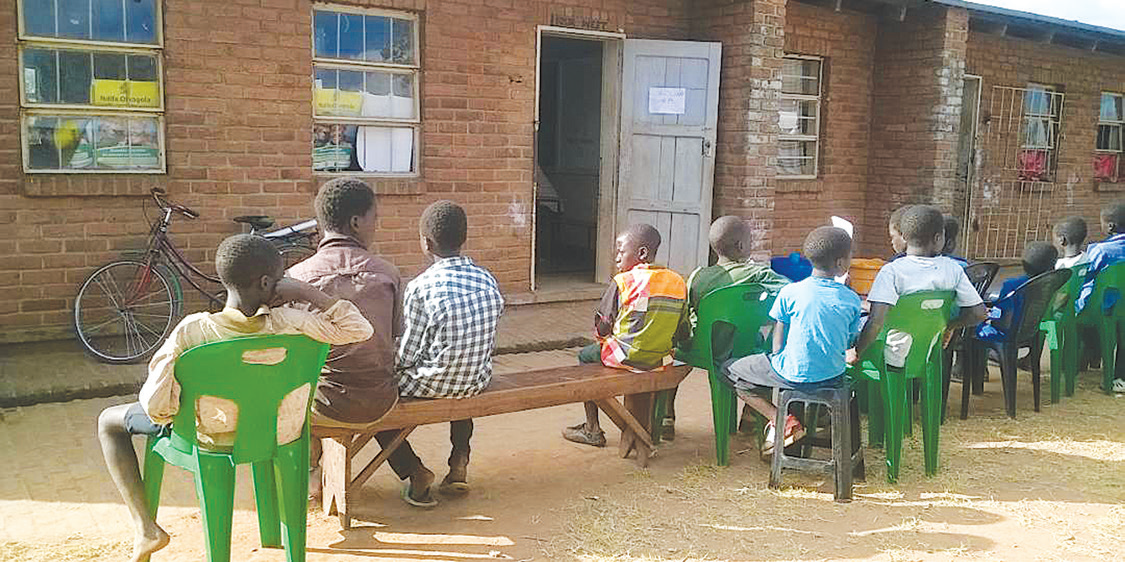Russia donates fertiliser, courts Malawi to summit
Russia has officially handed o v e r a donation of 20 000 metric tonnes (MT) of fertiliser to the Malawi Government and extended an invitation to the Russia- Africa Economic Summit set for July this year.
Russian Ambassador Nikolai V Krasilnikov handed over the fertiliser to Minister of Agriculture Sam Kawale in Lilongwe on Monday.

Krasilnikov said Russia donated the 20 000MT of fertiliser which he hopes will be distributed evenly across Malawi.
On the summit scheduled for July 28 to 29, he said it will unlock good opportunities for African countries such as Malawi.
“The summit is very important because it will give an opportunity for new collaborative programmes between Russia in particular and African countries. We are particularly pleased that Malawi has committed to be part of the summit,” said the envoy.
Krasilnikov also hinted that neither the donation nor the summit have any connection to the Russia- Ukraine war which has disrupted global supply chains and pushed up commodity prices.
On his part, Kawale declined to comment on why Malawi Government was asking farmers to pay for fertiliser donated by Russia.
However, he said Malawi will attend the forthcoming Africa-Russia Economic Summit.
Recently, some farmers The Nation interviewed expressed dissatisfaction wi th gov ernme n t ’ s arrangement to ask them to redeem 50 kilogrammes (kg) of fertiliser at K15 000 under the Affordable Inputs Programme (AIP) when it was a donation.
“Why should we be buying the fertiliser which has come as a donation? I thought it was supposed to be distributed for free so that farmers can cover up on the loss already made?” asked a prospective beneficiary Yamikani Chitsulo.
AIP, the Tonse Alliance administration’s flagship campaign promise of low cost fertiliser to boost food security, has been dogged with implementation challenges that have prompted authorities to go back to the drawing board.
President L azarus Chakwera last year announced that his administration will make reforms to the design and implementation of the AIP to improve its efficiency and prevent careless acts of corruption, incompetence and wastage.
He said the reforms will have strategic plans for targeting beneficiaries to the AIP and will also adopt the use of cooperatives and farming clubs to graduate farmers from the programme.





